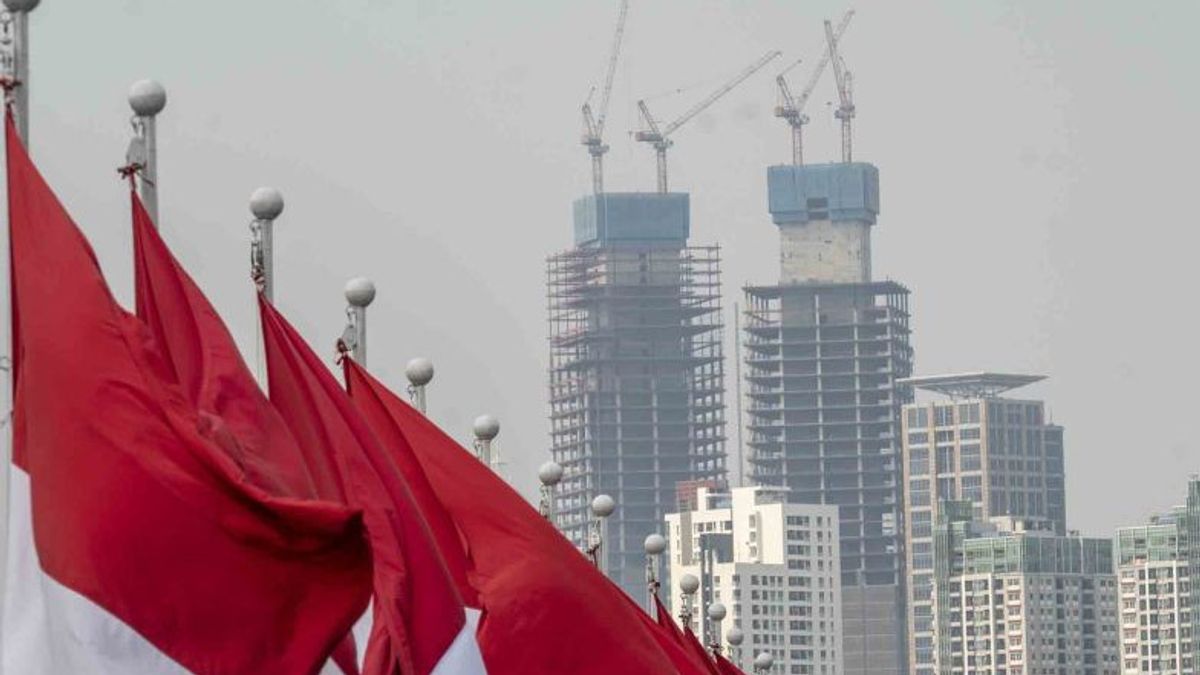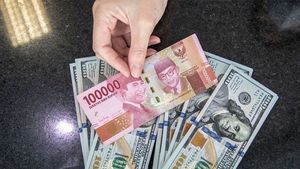JAKARTA - The Macroeconomic Research Office of ASEAN+3 (AMRO) projects that the Indonesian economy will continue to grow firmly at the 5 percent level in 2023 from an estimated 5.3 percent in 2022, which is driven by solid domestic demand.
"A solid domestic request is expected to support the Indonesian economy amid the forecast for a slowdown in global demand," said AMRO Economist Chief Sumio Ishikawa in an official statement, quoted from Antara, Friday, January 13.
Therefore, he assessed that the implementation of the policy mix was needed to maintain price and external stability while maintaining recovery momentum driven by strengthening domestic demand. Meanwhile, exports benefited from rising commodity prices and increased added value from the downstream industry based on natural resources.
At the same time, the soaring global food and fuel prices, which are intensified by the Russian and Ukrainian wars, are continuing to domestic prices and lifting public inflation. However, Indonesia's consumer price inflation is relatively under control compared to neighboring countries and is expected to be moderate in the central bank's target range in the fourth quarter of 2023.
On the other hand, the stability of the rupiah remains maintained amidst the strengthening of the US dollar and the increasing uncertainty of global financial markets. The running balance surplus and strong foreign investment inflows support Indonesia's external balance.
According to Ishikawa, the central bank's policy mix has been appropriately adjusted in response to external barriers to maintaining growth momentum while ensuring financial stability.
"Bank Indonesia (BI) has begun to normalize monetary policy by increasing the minimum mandatory demand ratio of rupiah. BI has also increased its benchmark interest rate to prevent rising inflation expectations and stabilize the rupiah exchange rate," he said.
With a healthy financial condition, he continued, the central bank's macroprudential policy will continue to be relaxed in line with other policy steps from the Financial System Stability Committee to support economic recovery.
Meanwhile, the Government of Indonesia has taken policy steps to contain inflation and maintain people's purchasing power, including efforts to strengthen the supply and distribution of goods needed between regions, especially food and foodstuffs.
To reduce the turmoil in global commodity prices, the Indonesian government has increased the subsidy budget for 2022 and maintained subsidized fuel oil prices (BBM), while subsidized fuel prices have been raised recently. In addition, the Indonesian government provides additional cash assistance and wage subsidies to vulnerable groups.
The implementation of the 2021 tax reform package, said Ishikawa, coupled with the recovery of economic activity and unexpected fortune from commodity prices, supports strong acceptance performance in 2022.
"The budget deficit is likely to narrow to below 3 percent of gross domestic product (GDP) by 2022, one year ahead of the government's plan. AMRO estimates that the fiscal deficit will be maintained below 3 percent of GDP by 2023," said Ishikawa.
The English, Chinese, Japanese, Arabic, and French versions are automatically generated by the AI. So there may still be inaccuracies in translating, please always see Indonesian as our main language. (system supported by DigitalSiber.id)













